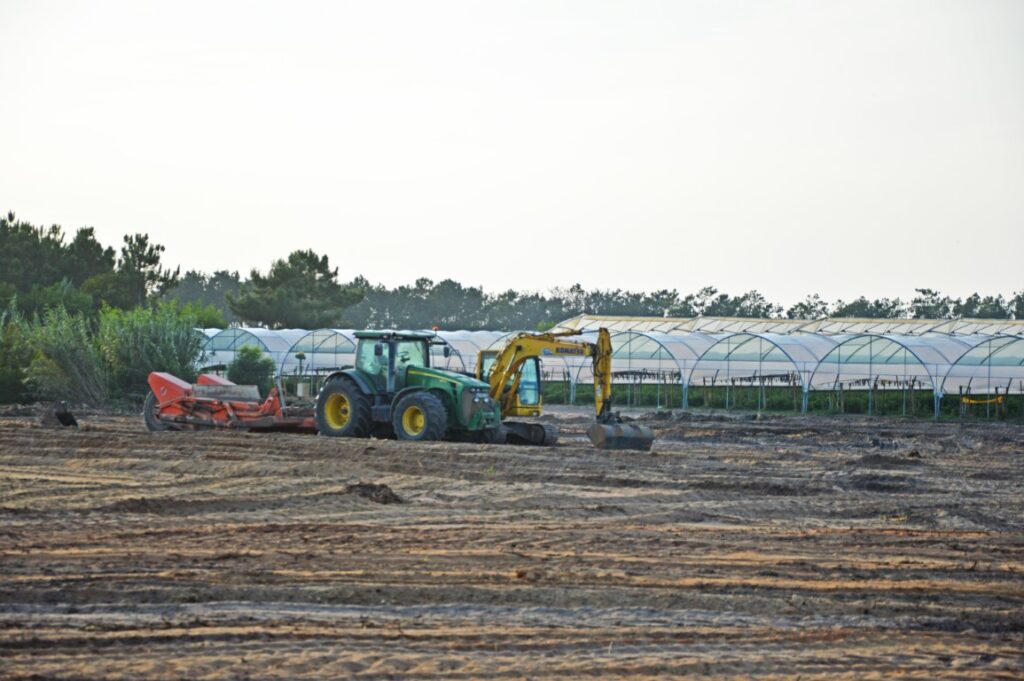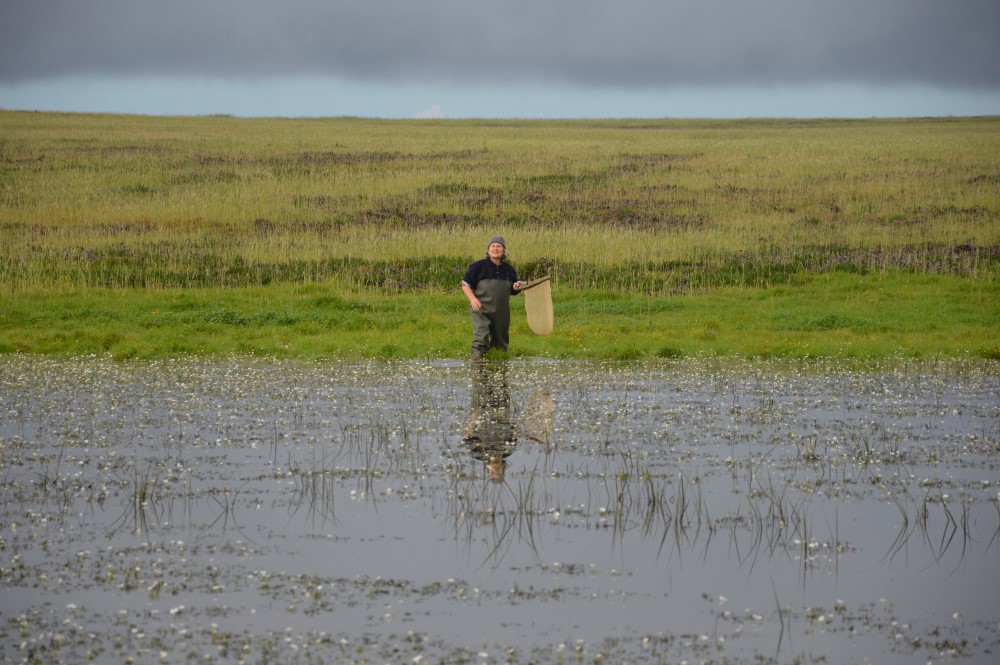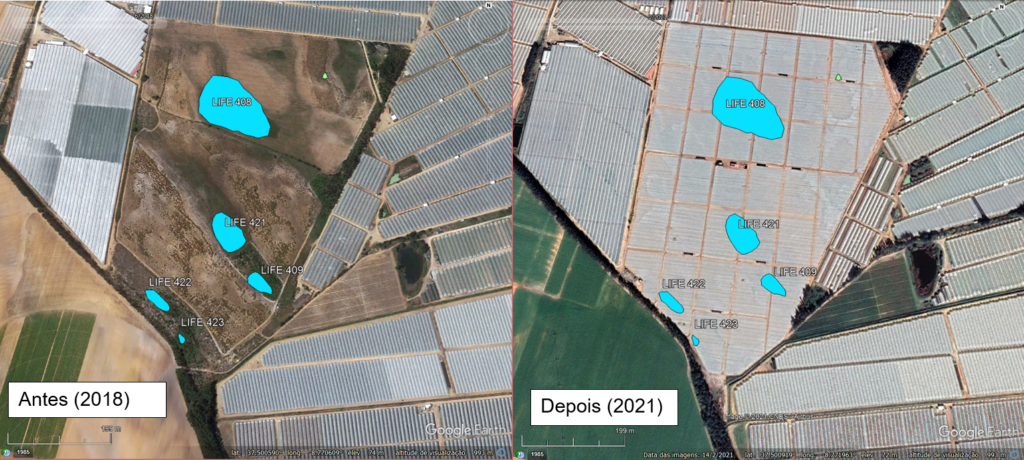The League for the Protection of Nature (LPN) today informed the European Commission of the total destruction, on the South West Coast, of five temporary Mediterranean ponds, "priority habitats whose conservation has even been the subject of European funding for more than five years".
In a statement, the LPN stresses that these "were the last survivors of one of the most important concentrations of ponds in the country", since "the rest were destroyed a few years ago".
The advance of intensive agriculture in this protected area “is, once again, at the origin of this disaster that illustrates the progressive degradation of the Southwest Coast, which holds extraordinary natural treasures that do not exist anywhere else in the world”.
The LPN recalls that, within this protected area, simultaneously classified as a Natural Park and a Natura 2000 network, the Mira Hydroagricultural Development coexists, «with the assumption of making agricultural activity compatible with the natural values existing in the area».
However, «the result of inspections and working groups created to assess the management of the Park and agricultural activity has already pointed to serious failures and non-compliance with legislation, such as the lack of monitoring of the quality of groundwater, soil, species and habitats, clearly calling into question any model of sustainable coexistence'.
Under the LIFE Charcos Project – coordinated by LPN between 2013 and 2018, and financed by European funds – 133 Mediterranean temporary ponds were identified, considered priority habitats in the Special Conservation Zone of the Southwest Coast.
Three years later, it appears that the applied investment and the knowledge acquired about these valuable biodiversity hotspots have not
were enough to prevent its destruction. «The photographs taken in Vale Figueira, in the municipality of Odemira, in June 2018 and, in the same area, in February 2021, leave no room for doubt: 5 ponds succumbed under new greenhouses and agricultural crops», denounces that environmental organization.
But, stresses LPN, "this is just an example".

Faced with this crime, the LPN filed a complaint with the European Commission, "demonstrating that its efforts to preserve the Portuguese natural heritage may be at stake due to the ineptitude of the Portuguese State".
“In protected areas, it is not acceptable for priority habitats to be destroyed, especially when there are clear obligations for their preservation and management, and commitments are made to society and the European Union. The Southwest Coast is currently without adequate monitoring and management, heading towards the progressive elimination of its natural values”, he adds.
What is happening in this region is also “a reflection of the disarticulation between the Ministry of Agriculture and the Ministry of Environment”. LPN considers that “synergies between these areas of territorial management would be beneficial, both for agricultural practices and for nature conservation”.
In this sense, the LPN, which contributed to the creation of this protected area and which has cooperated with the provision of technical and scientific information on this habitat, gathered under the funding of the European Commission, made a request for a joint meeting with the two Ministries , proposing to contribute to a better articulation.
LPN argues that "the natural heritage of the Southwest Coast, which belongs to everyone, cannot be eliminated by irresponsible and unsustainable agricultural holdings from an environmental, social and economic point of view."
«When the profit of private activities is based on their overlapping with natural and humanitarian values, it is a clear sign that Portugal is moving away from a sustainable and acceptable socio-economic model in civilization terms. This is a dramatic evolutionary setback that can only be prevented with cooperation and a sense of responsibility», concludes the oldest Portuguese Environmental NGO, in its statement.

Read more about temporary ponds and their importance by clicking here
Read more about harmful effects of intensive agriculture in the Natural Park of Southwest Alentejo and Costa Vicentina by clicking here




















Comments